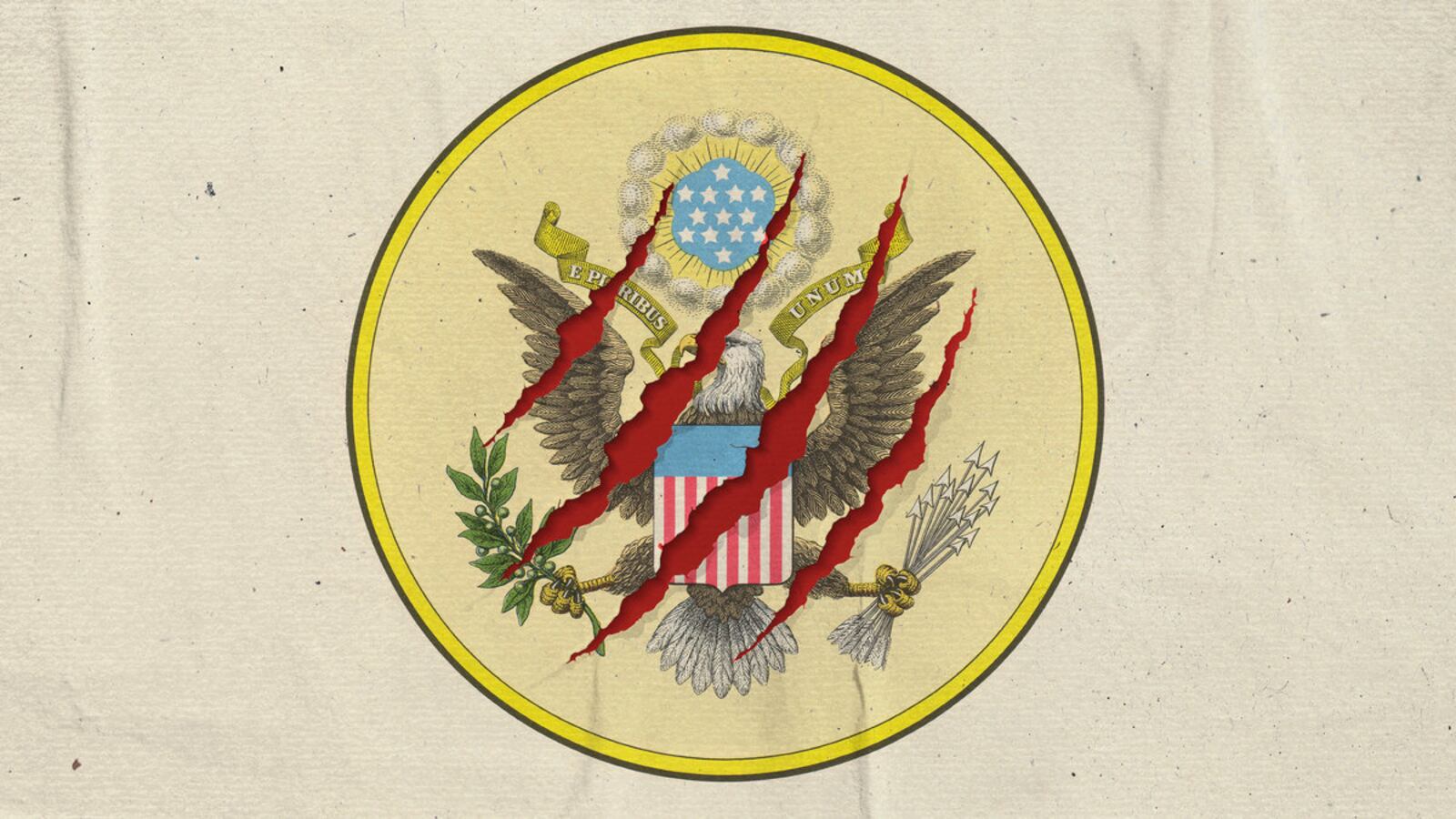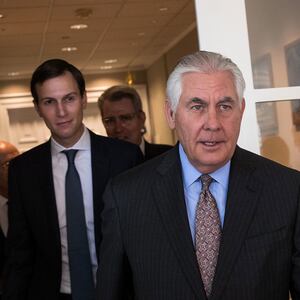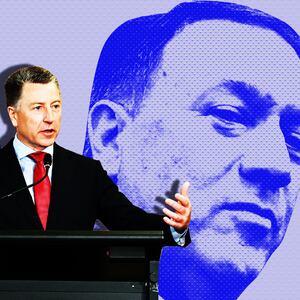In late 2017, President Donald Trump asked Secretary of State Rex Tillerson a simple question: can you make a problem go away? Trump’s problem was an indicted Turkish-Iranian gold trader named Reza Zarrab. More precisely, the problem was Zarrab’s lawyer, the president’s close friend Rudy Giuliani.
Investigators suspected Zarrab was working on behalf of the Turkish government’s state-owned bank Halkbank as part of a massive scheme to funnel billions of dollars into Iran in contravention of American economic sanctions. They wanted Zarrab to spill what he knew. Giuliani was in a panic.
Trump bluntly asked Tillerson to pressure the Department of Justice into ending its investigation of Zarrab. Tillerson flatly refused, even raising his concerns about the criminality of Trump’s request with then-Chief of Staff John Kelly. And yet, faced with a clear order to obstruct a federal investigation, neither Tillerson nor Kelly took any steps to report Trump’s request.
Zarrab’s case wasn’t even the first time Trump tried to push Tillerson into breaking the law for Trump’s own benefit. Speaking with Bob Schieffer last year, Tillerson said, “So often, the president would say ‘Here’s what I want to do and here’s how I want to do it,’ and I would have to say to him, ‘Mr. President I understand what you want to do but you can’t do it that way. It violates the law, it violates treaty, you know, and he just, he got really frustrated when we’d have those conversations.”
Since the earliest days of his presidency, Trump has attempted to circumvent and weaken the policymaking and legal frameworks that provide accountability to federal acts. And no pillar of the federal government has received more of Trump’s concentrated disdain than the State Department, once the American government’s most venerable institution. Trump’s wildcat-style diplomacy collided with the State Department almost immediately—and as Trump has succeeded in hobbling State, so has he hobbled the most effective checks on his self-dealing and corruption.
Career FSOs, some with more than 20 years of professional service navigating the pitfalls and traps of international diplomacy, are speaking out against Trump’s brash, just-wing-it brand of diplomatic negotiations. They remark with concern that Trump’s persecution of his own diplomats saps our pool of talented officers while weakening American messaging abroad.
“I watched the administration lurch even further these past two years toward a worldview characterized by bigotry, fear and small-minded chauvinism,” wrote 11-year Foreign Service veteran Bethany Milton in a New York Times op-ed explaining her sudden resignation. “What of the administration’s policies is there left to defend to foreign audiences?”
Milton isn’t alone in her defeatism. Long-time diplomat Chuck Park wrote in The Washington Post that he could “no longer justify being a part of Trump’s ‘complacent state.’ Others have followed suit. As a result, the once prestigious Foreign Service has atrophied both within and without: in 2010, nearly 23,000 Americans took the Foreign Service Officer Test. By 2018, fewer than 9,000 applied.
Nowhere is the collapse of the State Department more visible than in the rise of the Trumpian “pseudo-diplomat,” normally a close Trump friend or family member with no formal government job, dispatched in secret to conduct opaque “negotiations” with a raft of questionable foreign leaders. Since 2017, a greater share of key diplomatic efforts are undertaken not by trained envoys bound by State Department regulations, but by amateurs more willing to give the president his way.
Rudy Giuliani’s shady attempt to dig up dirt on Joe Biden in Ukraine fits the bill. So does Trump son-in-law Jared Kushner’s much-mocked attempts to bring about an Israeli-Palestinian peace agreement and solve American immigration standoffs with Latin American nations.
At the United Nations General Assembly last month, America’s most visible diplomat wasn’t U.S. Ambassador to the U.N. Kelly Craft—it was on-again-off-again foreign adviser Ivanka Trump, who had already caused controversy after trying to elbow her way into a high-level G20 discussion between French President Emmanuel Macron and the leaders of Britain, Canada and the International Monetary Fund. It didn’t go well.
None of Trump’s rogue diplomacy would be possible without a Secretary of State willing to allow dangerously unaccountable individuals to pursue their often contradictory goals. In Secretary Mike Pompeo, Trump finally found a yes-man par excellence.
Pompeo proved his loyalty early, working alongside Trump to protect Saudi Crown Prince Mohammed Bin Salman from the consequences of murdering and dismembering Washington Post journalist Jamal Khashoggi. More recently, he’s refused to cooperate with the House of Representatives’ impeachment inquiry, and he also failed to raise any red flags during Trump’s impeachable conversation with Ukrainian President Volodymyr Zelensky.
Instead of leaning on the full force of the State Department to bring forth the truth of Khashoggi’s murder, Trump demanded silence from Pompeo and career diplomats. Instead of a meaningful investigation led by career civil servants and the American intelligence community, Trump dispatched Kushner—again, outside of normal diplomatic accountability channels—to privately calm the Saudis.
Once the driver of American foreign policy, senior State Department officials now learn of conversations with North Korean dictator Kim Jong Un or Russian President Vladimir Putin through Trump’s public “Twitter diplomacy.” Former Secretary Tillerson didn’t even know he’d been fired until he skimmed the president’s social media accounts. Freed from the protocols and restrictions of official foreign policy by a complacent Pompeo and enablers in the Senate, Trump is now free to dispatch his vast network of supplicants in pursuit of self-dealing on a truly global scale.
The collapse of America’s Department of State is a global tragedy, the full cost of which we may not see for a decade. Trump has no intention of stopping his end-run around State—on the contrary, State’s newfound weakness represents one of Trump’s few measurable personal victories as president. He takes no small glee in acknowledging that those who stood against him are gone, and his personal diplomatic corps—Giuliani, the Trump children, various Eastern European go-betweens—stands unchallenged on the international stage.
There is still a chance for American institutions to stop the decay from Trump’s wanton corruption. On Thursday morning, two of Rudy Giuliani’s top associates were arrested for campaign-finance violations related to Giuliani’s opaque, Trump-directed Ukraine dealings. There are even signs Republican lawmakers are growing concerned at Giuliani’s inability to explain his role in the White House. Impeachment increasingly looks like the only viable remedy to such an advanced public cancer.
In 2017, Giuliani and Trump found themselves stymied by Rex Tillerson and John Kelly as they tried to make the Reza Zarrab case disappear. Now the opposition figures have been purged. Giuliani and Trump stand astride the ruins of America’s foreign policy and intelligence gathering institutions. The Senate has a choice: hold Trump and his band of foreign policy brigands accountable, or preside over the death of American soft power abroad.
This is our last opportunity to make the right choice.






